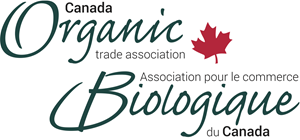
Dramatic growth in purchase of organic products – new data
Food in Canada Staff
Products Specialty Foods consumers organic purchase
August 2020 data shows that organic products sold in Canada now account for 3.2 per cent of all grocery sales. Canadian consumers are spending $6.9 billion annually on organic products. This is up from 2.6 per cent and $5.4 billion in 2017.
The Canada Organic Trade Association (COTA) commissioned Leger 360 to poll 1,000 consumers nationally in August to gauge the perception and appetite for organic food during the pandemic.
Purchaser demographics
Organic food consumers tend to be younger, beginning with centennials (age 18-24) for whom organic products comprise 46 per cent of their weekly grocery purchases. For millennials (age 25-34) organic products are 32 per cent of their weekly grocery purchase. This is followed by xennials (age 35-44) at 25 per cent.
Product categories
Of those who buy organic groceries, fruits and vegetables are purchased most often—roughly eight-in-ten (78 per cent) usually buy organic fruits and vegetables. Purchases of meat and poultry grew from 26 per cent in 2016 to 32 per cent in 2020—the largest increase of any product category.
Purchase locations
Eight-in-ten (82 per cent) Canadians who buy organic food regularly shop for organic food at regular grocery stores, up from 75 per cent in 2016.
More than four-in-ten (45 per cent) shop for organic products at mass retailers (e.g. Walmart, Costco), up from 39% in 2016.
One-third of consumers (32 per cent) buy organic food directly from farmers (e.g. farmers’ market, veggie box), up from 25 per cent in 2016.
One-quarter purchase from natural health stores (25 per cent), showing little growth from 24 per cent in 2016. Except in the province of Quebec, where 39 per cent of organic purchases are from natural health stores.
Pharmacy and online retailers account only for 12 per cent (7 per cent in 2016) and 8 per cent (4 per cent in 2016) of organic food purchases.
Trust in Organic
More than half of Canadians (55 per cent) trust products with the Canada Organic Certified logo (regulated by the Canada Food Inspection Agency), up from 39 per cent in 2016. Trust in “Made in Canada” products also jumped significantly from 53 per cent in 2016 to 63 per cent in 2020.
Quote
“The data shows that Canadians are buying more organic products year over year, even during a global pandemic. From avoiding exposure to pesticides to higher animal welfare standards, consumers are making choices that align with their health priorities and values,” said Tia Loftsgard, Executive Director of COTA.
About the Canada Organic Trade Association
The Canada Organic Trade Association is a membership-based association for the organic industry in Canada: representing growers, processors, certifiers, provincial farmers’ associations, importers, exporters, retailers and others throughout the organic value chain. COTA’s mission is to promote and protect the growth of organic trade to benefit the environment, farmers, the public and the economy. COTA brings together the diversity of Canada’s organic sector: from farmer and processor to retail, including food products, fiber and textiles, personal care, and emerging sectors such as organic aquaculture. www.canada-organic.ca
Print this page